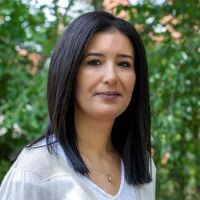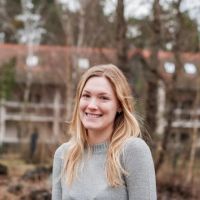
German Institute of Human Nutrition Potsdam-Rehbruecke (DIfE)
The German Institute of Human Nutrition (DIfE) investigates the influence of nutrition on health and works to translate scientific knowledge into effective strategies for prevention and therapy. Researchers at DIfE combine expertise in both basic and applied science, ranging from cellular and animal studies to epidemiological research and human interventions, with the goal of efficiently transferring new findings from the laboratory to patient care.
The DIfE team brings extensive expertise in studying the causes and pathomechanisms of obesity. Within Work Packages 3 and 4, the team compares genetic and epigenetic changes in muscle and adipose (fat) tissue under varying lifestyle and clinical conditions. Specifically, researchers profile mice following intermittent fasting programmes and exercise interventions, and analyse tissue samples from individuals with obesity before and one year after bariatric (weight-loss) surgery. This comparative approach enables the identification of how distinct interventions remodel metabolic tissues and reveal molecular signatures associated with improved metabolic health.
In close collaboration with other Obelisk partners, DIfE aligns and compares these intervention-responsive gene changes with molecular patterns previously described in children to identify shared mechanisms and early risk markers. The most promising candidate genes are then functionally tested in vitro and in vivo using CRISPR/Cas9 to determine their roles in metabolism. By mapping these pathways, DIfE aims to uncover actionable biomarkers and therapeutic targets, ultimately contributing to more effective prevention strategies and better long-term health outcomes for children at risk of obesity.
People
Annette performed her PhD in biology, her habilitation in pharmacology and a research stay at the Scripps Research Institute (La Jolla, California) before she was appointed associate professor of RWTH Aachen. Since 2002 she has been working at the German Institute for Human Nutrition in Potsdam-Rehbruecke (DIfE) initially as Head of the Endocrine Pharmacology Group and since 2009 as full professor and head of the Department of Experimental Diabetology. She was awarded with the Werner-Creutzfeldt-Award and the Hellmut Otto Medaille from the German Diabetes Association and the DAG Medaille of the German Obesity Association.
Meriem obtained her Master’s degree in genetics from University of Tunis el Manar and then moved to Paris in 2011 to perform her PhD in biology in the research unit INSERM U986. She obtained her PhD degree from Paris Descartes University in 2015 and since then she joined the Department of Experimental Diabetology for a Postdoctoral fellowship. Her research is focusing on epigenetic regulation of obesity and type two diabetes. In 2020, Meriem was awarded the Silvia King Prize from the German Diabetes Society (DDG).
Heike obtained her PhD in Molecular Cell Biology at the University of Potsdam (Germany) before she performed a Postdoctoral fellowship at the University of Gothenburg (Sweden). Since 2021 she is head of the Research group Genetics of Obesity at the DIfE and the Junior research group Molecular and Clinical Life Science of Metabolic Diseases at the University of Potsdam, where she also completed her habilitation in 2022 in Physiology and Pathophysiology. Her research focuses on genetic factors driving muscle insulin sensitivity. She was awarded as best young researcher of the year in 2013 and received the Michelson Award for the best dissertation in 2009/2010 at the University of Potsdam.
Miriam studied molecular biology and biotechnology at the Technical University of Graz in Austria where she received her Master’s degree in 2023. She is a PhD student since 2024 at the German Institute for Human Nutrition in Potsdam-Rehbruecke (DIfE) in the Department of Experimental Diabetology. She is also part of the group Nutrigenomics of Obesity. She investigates the plasticity of obesity-associated epigenetic and transcriptional alterations after invasive and non-invasive interventions.



